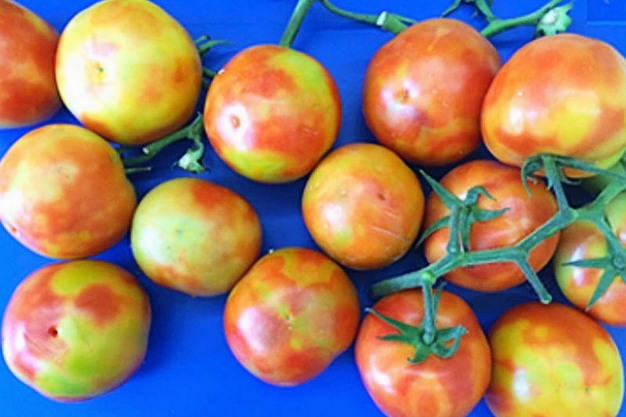Biosecurity New Zealand has placed import restrictions on tomato seed imports from Australia, after the detection of tomato brown rugose fruit virus (ToBRFV) at two South Australian growing properties.
"We've stepped up our biosecurity requirements in response to the recent finds in South Australia," says Biosecurity New Zealand deputy director general Stuart Anderson. "Imported seeds for sowing from Australia will now require testing for the virus prior to arrival in New Zealand, which is a requirement that is already in place for other countries where the virus is present. We have also temporarily suspended tomato imports from all Australian states except Queensland, where there is no evidence of the disease or links to the affected properties in South Australia."
Stuart Anderson says all our imported tomatoes from Australia currently come from Queensland and not South Australia. "We're in close contact with our counterparts in Australia about what they've found and the measures they are taking, and we'll continue to monitor the situation closely. We're committed to ensuring New Zealand growers are protected, and that's why we've taken these steps already."
Stuart Anderson says the virus, which was first noted in the Middle East, has never been found in New Zealand, and affects tomatoes, capsicums, and chillies, causing yellowing and deformity in the host plants, but has no impact on human health.
"There is nothing to suggest the virus is here at present, but as always we ask growers to check their biosecurity practices and be vigilant and contact us on our pests and diseases hotline (0800 80 99 66) if they notice problems with their tomatoes."

According to the Hort Innovation statistics handbook, South Australia produces 18 per cent of the national tomato production, with 57,970 tonnes worth $179.8million, with high production during the winter months, and medium levels throughout summer.
In terms of capsicums, SA has 21 per cent of the national share, with 15,322 tonnes ($54.3m) and while the state produces a very small amount of chillies, less than one per cent of national production.
As part of response activities, South Australia's Department of Primary Industries and Regions (PIRSA) is currently investigating the source of the outbreak and determining any potential further spread so that effective mitigation measures can be implemented as quickly as possible.
ToBRFV is an exotic plant disease that affects tomatoes, capsicums and chillies. Listed on the National Priority Plant Pest list, it is a highly contagious plant virus and is regarded as a considerable threat to Australia's $5.8 billion vegetable industry due to reduced yield and quality of produce.
Infected plants show symptoms such as mosaic patterns, yellowing and deformities on leaves, while fruits develop brown wrinkled spots, deformations and uneven ripening, reducing their yield and marketability. Different plant varieties can present different symptoms.
While ToBRFV has no known effects on human health, South Australian Chief Plant Health Officer Nick Secomb said biosecurity is everyone's responsibility. "Growers are urged to look out for signs of tomato brown rugose fruit virus and report anything unusual to ensure early detection," he said. "PIRSA will continue to update the industry on surveillance, testing and contract tracing efforts."
In New Zealand, for further information and general enquiries, call MPI on 0800 00 83 33 or email info@mpi.govt.nz
In South Australia, growers who notice anything suspicious with their plants and crops should immediately contact the Exotic Plant Pest Hotline on 1800 084 881.
Click here for further information on ToBRFV.
